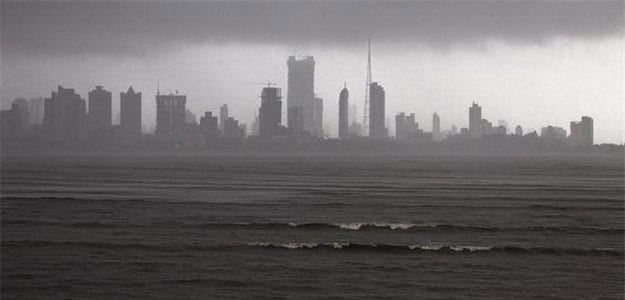South Mumbai Property Prices May Come Down: JLL India
26 Nov 2015
South Mumbai property prices - believed to be one of the most expensive in the country- may see some softening, once the Mumbai Trans Harbour Link comes up, said Ashutosh Limaye of real estate consultant JLL India told NDTV.
The Mumbai Trans Harbour Link (MTHL), also known as Sewri-Nhava Sheva Trans Harbour Link, is a proposed 22 km, freeway grade road bridge connecting Mumbai with Navi Mumbai.
The bridge will begin in Sewri, South Mumbai and cross Thane Creek north of Elephanta Island and will terminate at Chirle village, near Nhava Sheva. When completed, it would be the longest sea bridge in India.
"So when trans urban link happens or when some of the other projects actually see the light of the day, that is the time when the traditional posh areas or premium areas of South Mumbai, say Bandra to Juhu, areas will see some softening of prices," said Mr Limaye, who is is the head of research of real estate intelligence service at JLL India.
He however, did not elaborate how much the prices may correct.
The key to bringing real estate prices in check remains infrastructure, he said.
"I think that's going to be key because as we all know most Indian cities suffer with very limited land supply and when you have infrastructure projects like these which is actually taking off and in due course of time getting completed that opens up urbanise-able or developable land around the cities and I think that is absolutely essential in controlling the price in city centrals," Mr Limaye said.
The Maharashtra chief minister last week once again reiterated his government's commitment towards the completion of the Mumbai Trans Harbour Link project.
At a pan-India level, housing price growth has slowed down, according to RBI data. Growth is down to 10 per cent in FY13-14 from 20-25 per cent in FY11-12, as per the central bank.
"It is no surprise that we have seen the price growth getting moderated and I think it was to happen because we have seen high level of inventory of unsold residential units across the country and across the top 10 cities the average is 30 months of inventory which is quite a bit," Mr Limaye said.
There are fewer new launches getting added to the market as developers want to first get rid of the existing inventory, he said.
"As the inventory crawls beyond 24-25 months then the concern starts creeping in. If it is more than 30 it is a clear signal that the market is not accepting the price at which the supply is being offered to them. That calls for moderation in price growth and at times price correction as well."
Mumbai and Delhi NCR are struggling with inventory more than the rest, he added.
"In some of the other cities, say Pune or Bangalore, the equilibrium is very much there, we don't anticipate any price correction but NCR (National Capital Region), MMR (Mumbai Metropolitan Region), the fringe areas of several cities where too much of activity has happened these areas have grown too fast for the appetite of that area, prices should come down."
At the current sales rate if no new projects are launched, anything which is close to 24 months of inventory is seen to be acceptable, and maintains the equilibrium between demand and supply, JLL India said.

